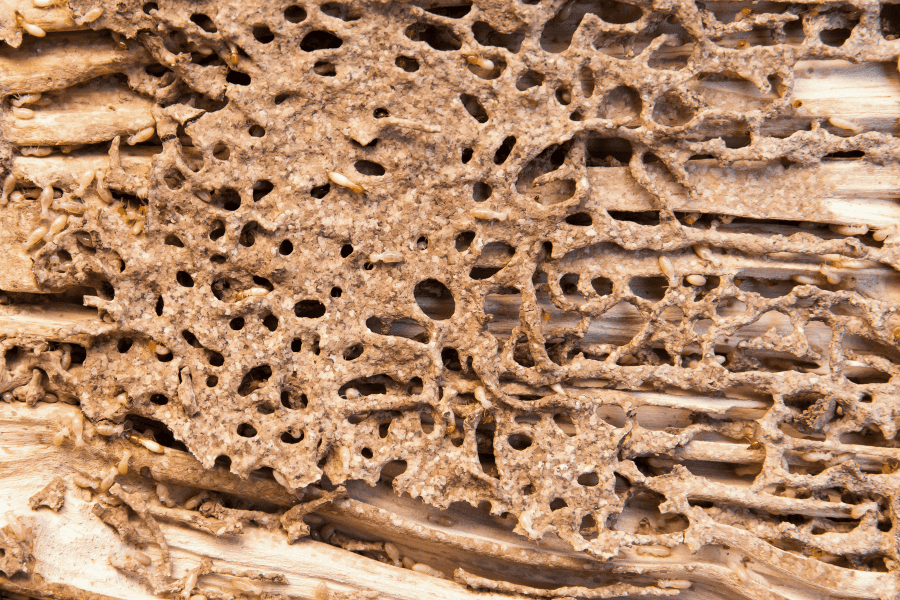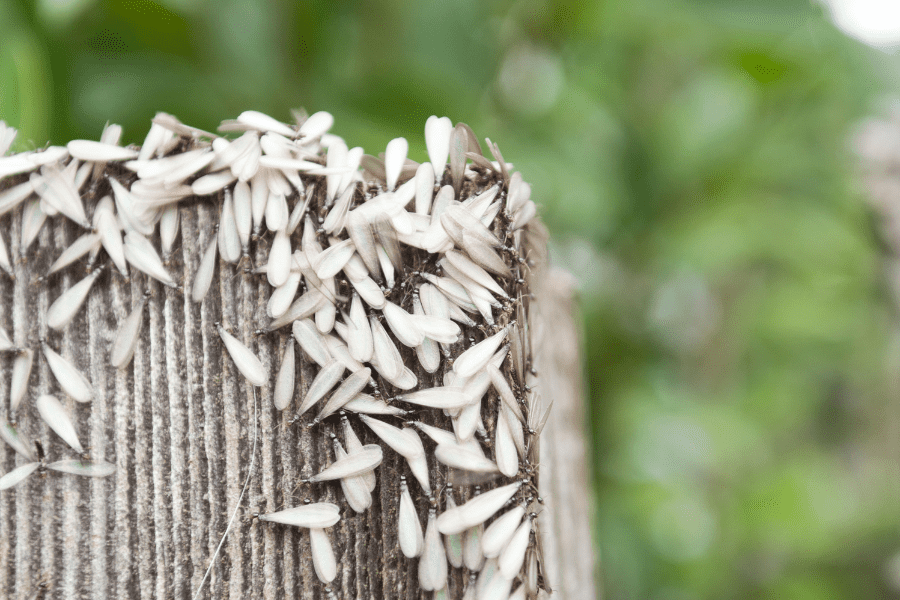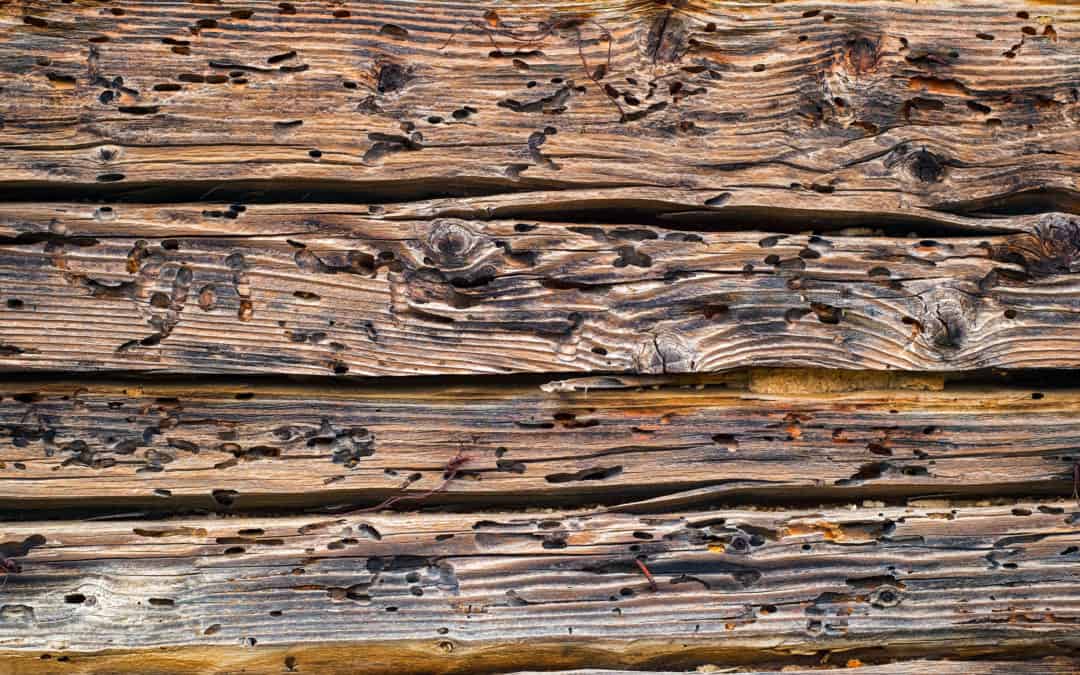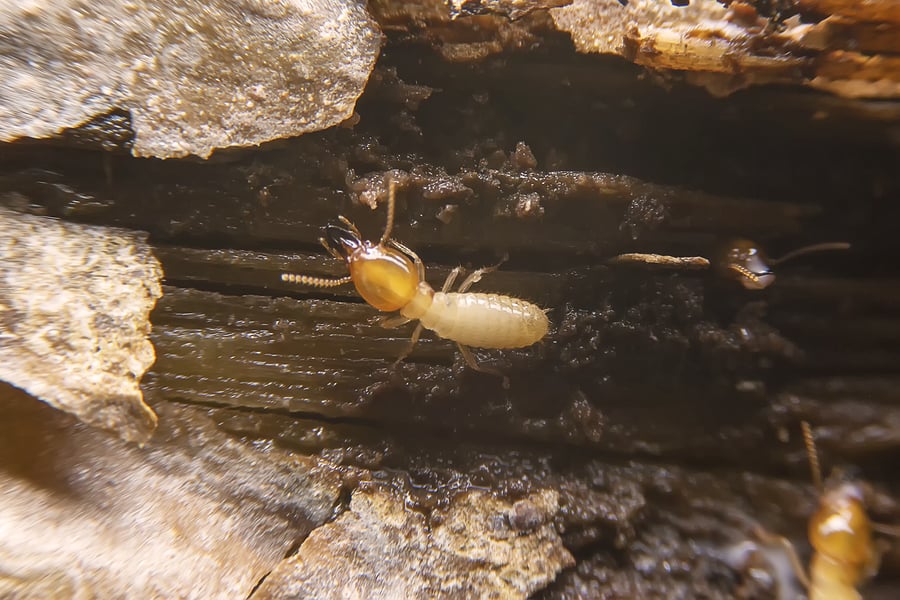READY TO GET STARTED?
REQUEST A FREE ESTIMATE
Fill out the form below or call (336) 226-1448 for a free, no-obligation estimate.

When most people think of pests, they picture mosquitoes buzzing around in the summer or rodents sneaking indoors to escape the winter cold. However, there is one often-overlooked pest that can cause serious long-term damage if left unchecked: termites. With March approaching, Termite Awareness Month, now is a perfect opportunity for homeowners in North Carolina to prioritize termite inspections. By understanding these silent destroyers and taking proactive steps, you can protect your home from potentially costly damage.
While most pests might take a break during colder months, termites are active year-round, especially given North Carolina’s mild climate. These tiny invaders don’t hibernate but continue to feed on wood, putting your home at risk. Unlike ants or spiders, termites work silently, often causing damage before you even realize they’re there.
Ignoring the threat can result in significant damage, with termites quietly consuming the wooden structures of your home. By the time their presence becomes noticeable, the damage may be extensive and expensive to repair. That is why scheduling a termite inspection should be a priority for homeowners, even during winter.
Identifying a termite infestation early can save you from costly repairs. Despite their ability to hide, termites leave telltale signs that can alert you to their presence.
Knowing these signs is helpful, but identifying an infestation early often requires the expertise of a professional. This is where professional termite inspections come in. A trained pest control technician can conduct a thorough inspection, identifying signs of termites in hard-to-reach or hidden areas like attics and crawl spaces.
Professional inspections are crucial because termites can remain active in areas that are not easily visible. A licensed pest control expert can uncover hidden damage and ensure your home remains protected.
The best way to protect your home from termites is to prevent them from entering in the first place. Here are a few simple yet effective prevention tips:
Termites may be silent, but their impact is anything but. For North Carolina homeowners, understanding the importance of early termite inspections and staying vigilant against these pests is vital. By recognizing the signs of an infestation early and taking preventive measures, you can protect your home from the costly damage termites can cause.
Remember, when it comes to termites, an ounce of prevention is worth a pound of cure. Consider scheduling a professional inspection today with a licensed pest control company near you. Secure your home’s future by learning more about how you can protect it from termites and other pests.

Once the cold weather begins to creep away is when we should begin to see swarming termites. Especially after a big rainfall, mature winged adults will swarm from their original nesting site in hopes of forming new colonies. The most common termite you will see swarming is the Eastern subterranean termite, which is native to North Carolina. Here are some fast facts about these termites:
Swarming is beneficial when creating new colonies. Termites swarm after a colony has reached a certain capacity and is ready to expand. This normally happens once per year for most colonies. Hundreds or even thousands of swarmers, also known as alates, are produced with the sole purpose of reproduction and expansion.
Swarming can occur indoors or outdoors. They cannot survive indoors because of the lack of soil to colonize. If found indoors, they are usually found near windows and light fixtures as they are attracted to light. Whether indoors or outdoors, they usually can’t cause damage. As swarmers, they can’t bite, sting, or chew. The presence of swarms indicates that a colony is nearby, though; so, although the swarmers can’t cause damage, the nearby colony can.
If you begin to see swarming termites and aren’t sure if your home has become infested, be sure to give your local termite control company a call and they can inspect your property and set up a proactive termite control plan.

It’s estimated that termites cause billions of dollars worth of damage annually in the United States. While they primarily feed on wood, they can also damage books, insulation, and swimming pool liners and filters. They like to wreak havoc on trees, shrubs, and plants that are in bad health. Termites can infest buildings at any time. This can be particularly troublesome when buying or selling a home. A termite inspection and report are usually required as a condition of sale of a home.
Signs of Damage
When signs of termite damage surface, the infestation has often been there for years with extensive damage already sustained. Some signs of termites in your home include:
Significant damage from termites can have an effect on the structural integrity of your home and can even cause ceilings and floors to collapse. Termites can also ruin furniture and flooring.
Damage Costs
One question that many homeowners have is if termite damage is covered under a homeowner’s insurance policy. Unfortunately, in most cases the answer is no. Homeowner’s insurance typically does not cover termite damage or removal because it can usually be prevented through routine home maintenance. However, you should always check with your insurance provider to see what you are and aren’t covered for.
Prevention
Termites can be prevented with scheduled periodic professional inspections which can help identify signs of infestations early. This can help keep repair costs down and the damage to a minimum. Any professional termite control plan should eliminate termites, prevent future termite infestations, and prevent termite damage. If you suspect that you have a termite problem or want to have an inspection done, contact your local pest control company.

Buying a home is a major investment. For most homeowners, a lot of time is spent repairing and renovating their home to their liking. However, owning a home can also come with a lot of unexpected problems that can be costly to repair, such as termite damage. Termites can colonize homes and cause significant undetected destruction over a long period of time. Most of the time, it costs thousands of dollars to repair their damage. Unfortunately, the infestations can sometimes be exacerbated by the homeowner. Below, we’ll explain what you need to know to make sure you aren’t attracting termites.
Improper Drainage
One of the most common reasons why you may have a termite infestation is due to improper drainage around your home. Subterranean termites are attracted to moisture and need an abundant source of nearby water to survive. Debris can build up in your home’s gutters, and the excess moisture can soften your roof and cause it to rot. A downspout can help divert rainwater away from your foundation, and splash blocks can prevent the water from pooling.
Wood Mulch
The type of materials you use to landscape can attract termites, specifically mulch. Mulch is often used near and around homes, usually against the foundation. Unfortunately, it serves as a food source for termites as it retains moisture and attracts these pests right to the edge of your home. Try to minimize the use of wood mulch and keep it at least 15 inches from the foundation.
Moisture
Lack of airflow and leaking pipes contribute to moisture problems in the home and can create a perfect environment for termites. Eliminating any type of excess moisture inside of your home is a huge step in preventing termites. Consider enclosing your crawlspace to prevent termites and improve the overall health of your home. Doing so will reduce the moisture, decrease humidity, lower utility bills, and prevent mold and wood rot.
If you’ve taken the necessary steps in preventing termites but still suspect that you have a problem, call your local pest control company to help. They can help set you up with a termite inspection and termite control and prevention plan.